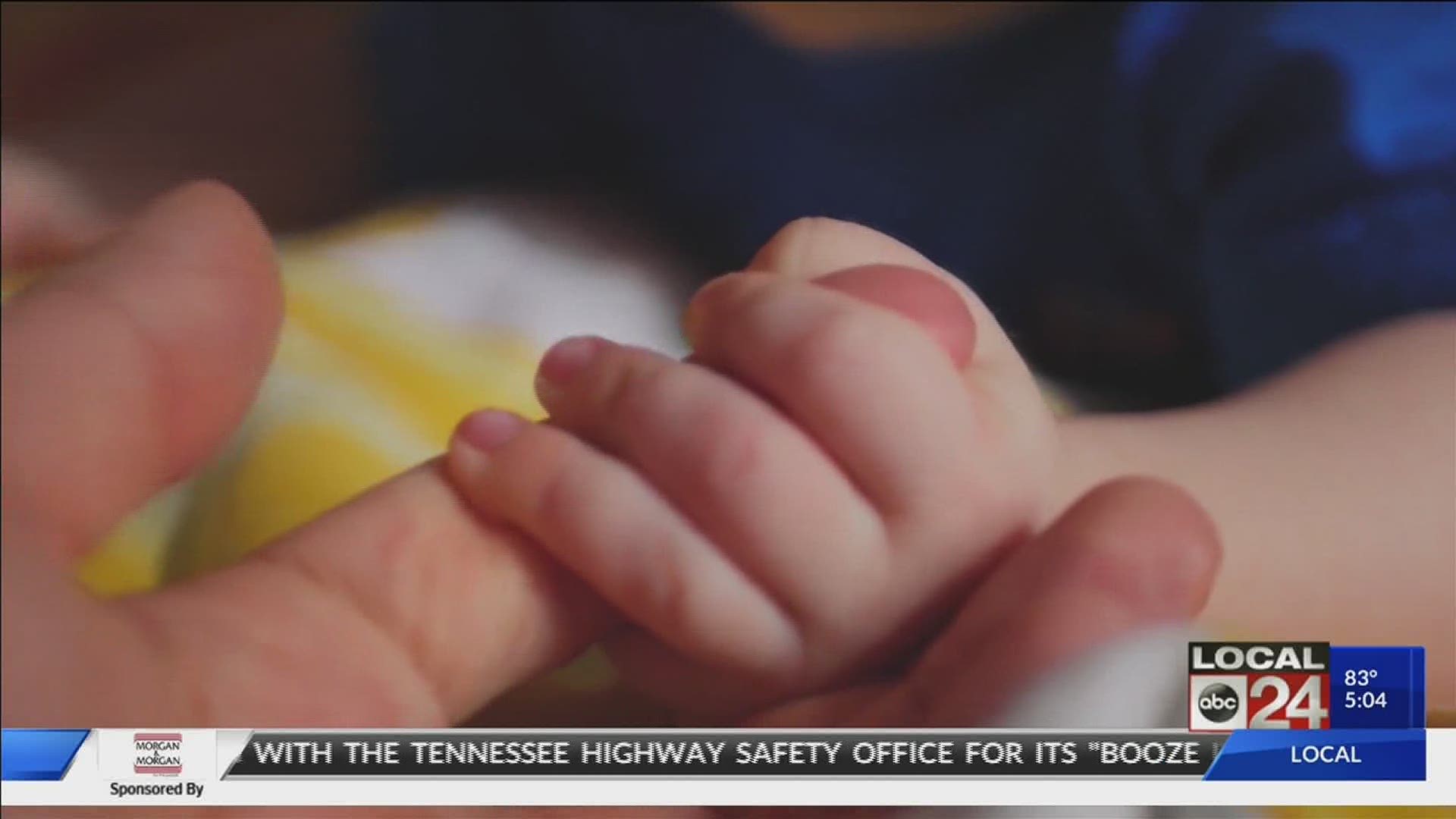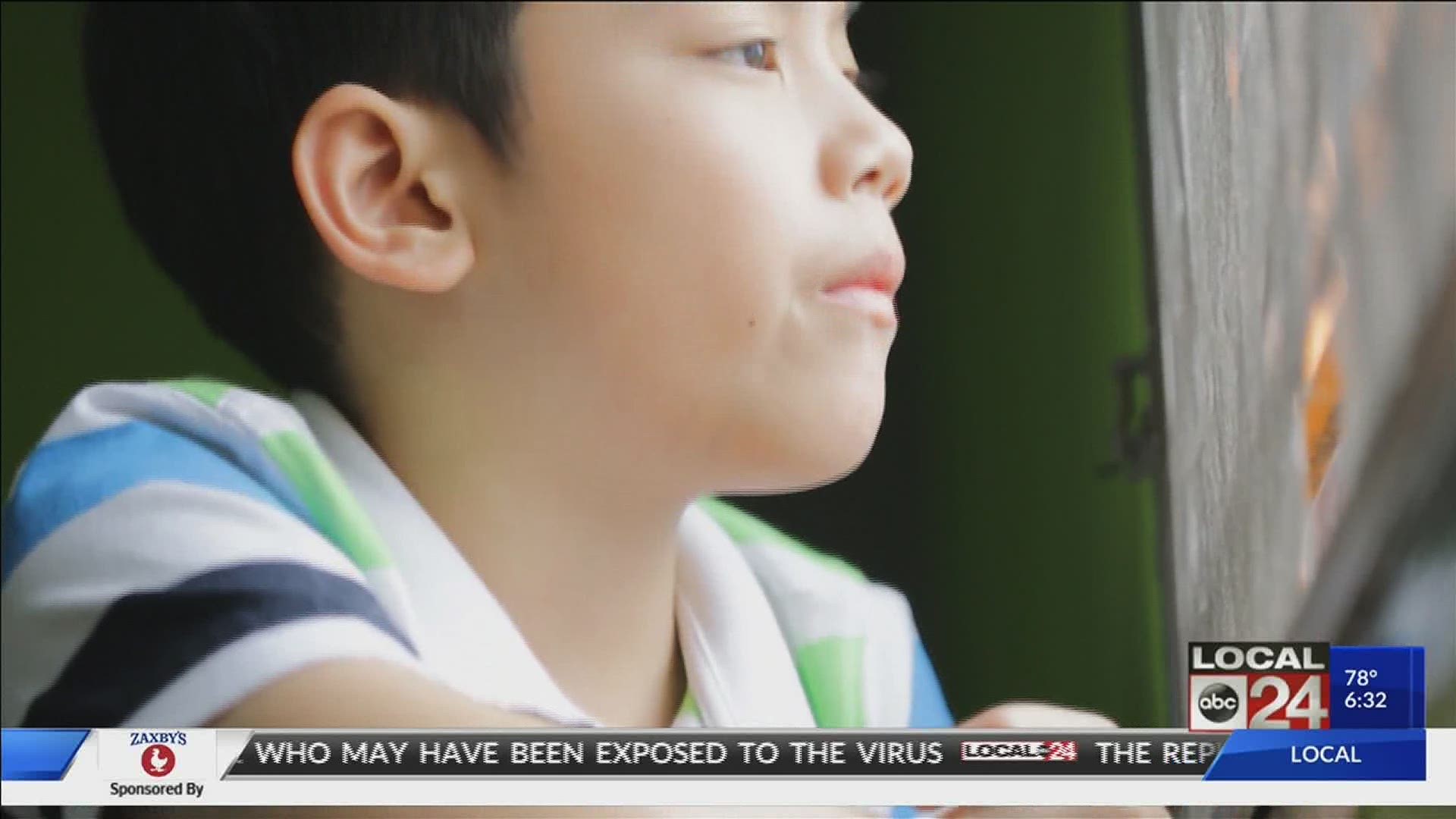MEMPHIS, Tenn — Six months into the pandemic, Mid-South families are having to go through their fair share of hardships just to keep their families safe and supported. That stress could have a trickle down effect on a child's well-being.
Dr. Jason Yaun is troubled by the numbers Le Bonheur patients and their families are reporting.
“We’re starting to see for the last 3-4 months now parents reporting a lot of the stressers that the pandemic is putting on both them and their children," Dr. Yaun said.
Dr. Yaun is the Le Bonheur Division Chief of Outpatient Pediatrics and the Family Resilience Initiative Medical Director.
He reports increasing numbers of parents reporting mental health problems like depression and anxiety plus additional reports of exposure to community violence. Dr. Yaun said the exposure or witnessing community violence reports have increased as high as 300%.
"These are all things that can translate into adverse childhood experiences," he said. “Stress that children experience early on in life that because of the degree or types of stress become toxic and affect certain parts of the brain and functioning impact long-term behavior and health outcomes.”
During check-ups, families are asked about these incidents as part of the Family Resilience Initiative, a clinic at Le Bonheur, Dr. Yaun explains.
That clinic dedicates support to families of children that have experienced multiple adverse childhood experiences (ACE). The Centers for Disease Control and Prevention defines an ACE as a potentially traumatic experience that occurs in childhood like: experiencing violence, abuse, or neglect, witnessing violence in the home or community or having a family member attempt or die by suicide.
The CDC said a child's home environment can also develop into an ACE due to reasons such as substance misuse, mental health problems, being separated from a parent or a family member being incarcerated.
“The increase in the violence exposures, the increase in mental health issues, I think just brings home the stress of the pandemic," Dr. Yaun said. "We have families who are worried for their own health, the health of their parents, the health of their children, their financial health.”
Dr. Yaun said that stress families are going through trickle down to children who, too, experience it.
"[That stress] puts children at higher risk for things like abuse and neglect which then becomes those adverse childhood experiences," he said.
Dr. Yaun said that concern is amplified by the potential life-time effects an ACE can have on a child.
"We know as the number of adverse childhood experiences increases for the child, the higher the likelihood that they are to have the potential behavioral, mental health problems which could be problems like substance abuse and future health outcomes," he said.
According to the CDC, examples of future health issues derived from ACEs includes chronic diseases like cancer, diabetes, heart disease, and suicide.
For children who have experienced multiple ACEs, the Resilience Family Initiative provides care and support for them and their families through a wraparound of services.
“What we want to do through that clinic is identify early on with children adverse childhood experiences, other health related social needs that their family may have so we can mitigate the effect of any ACE’s they’ve experienced previously," Dr. Yaun said.
That help can include, for example, support with food insecurity or domestic violence.
The CDC reports 61% of adults surveyed across 25 states had experienced at least one type of ACE. Nearly 1 in 6 reported had experienced four or more.


